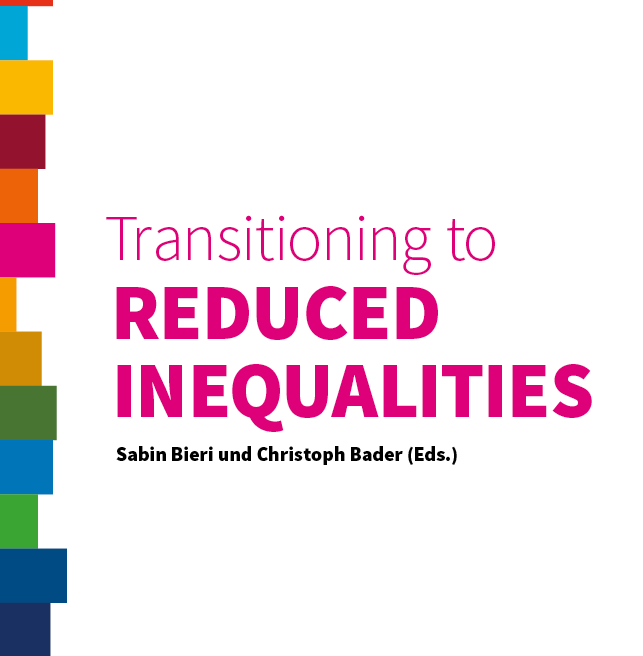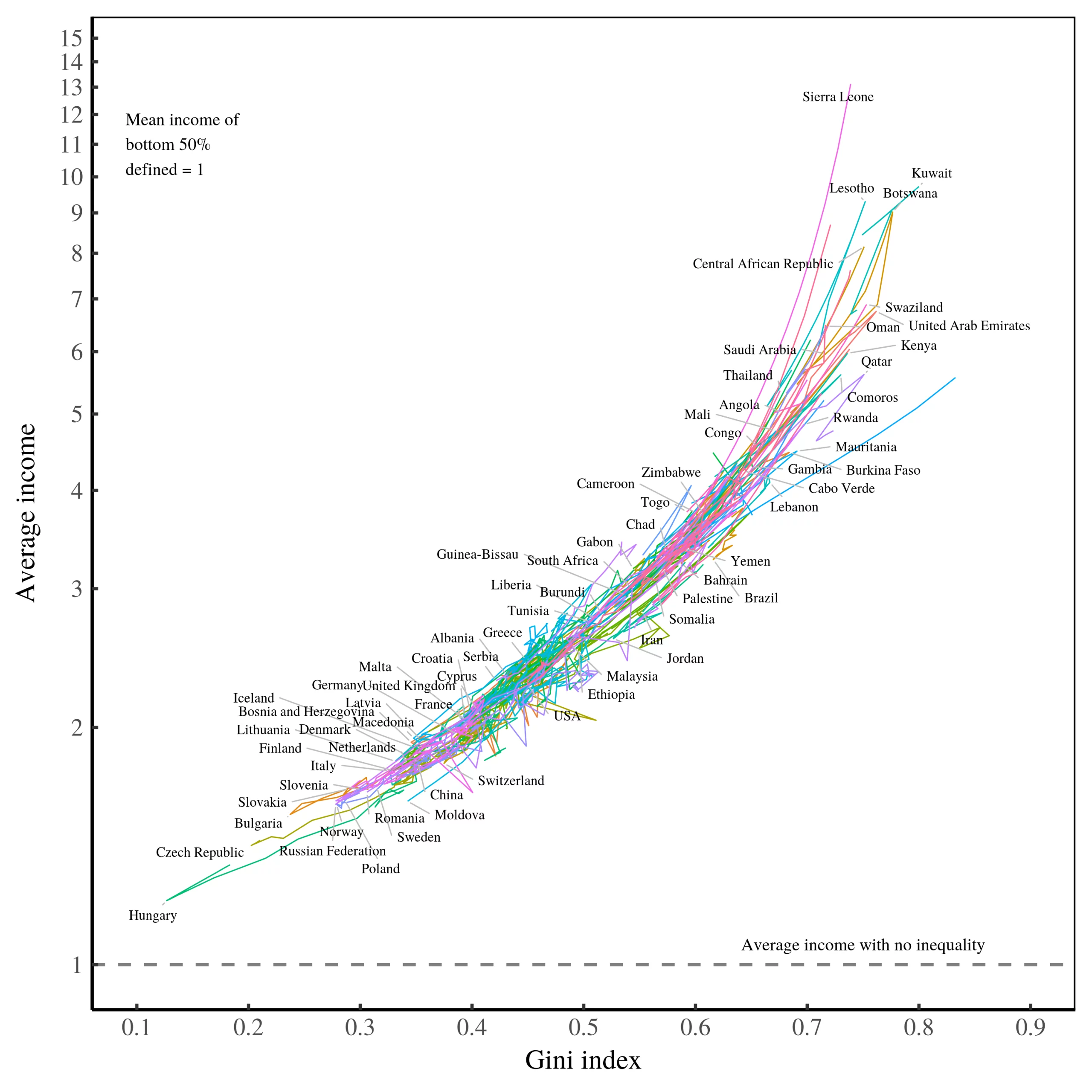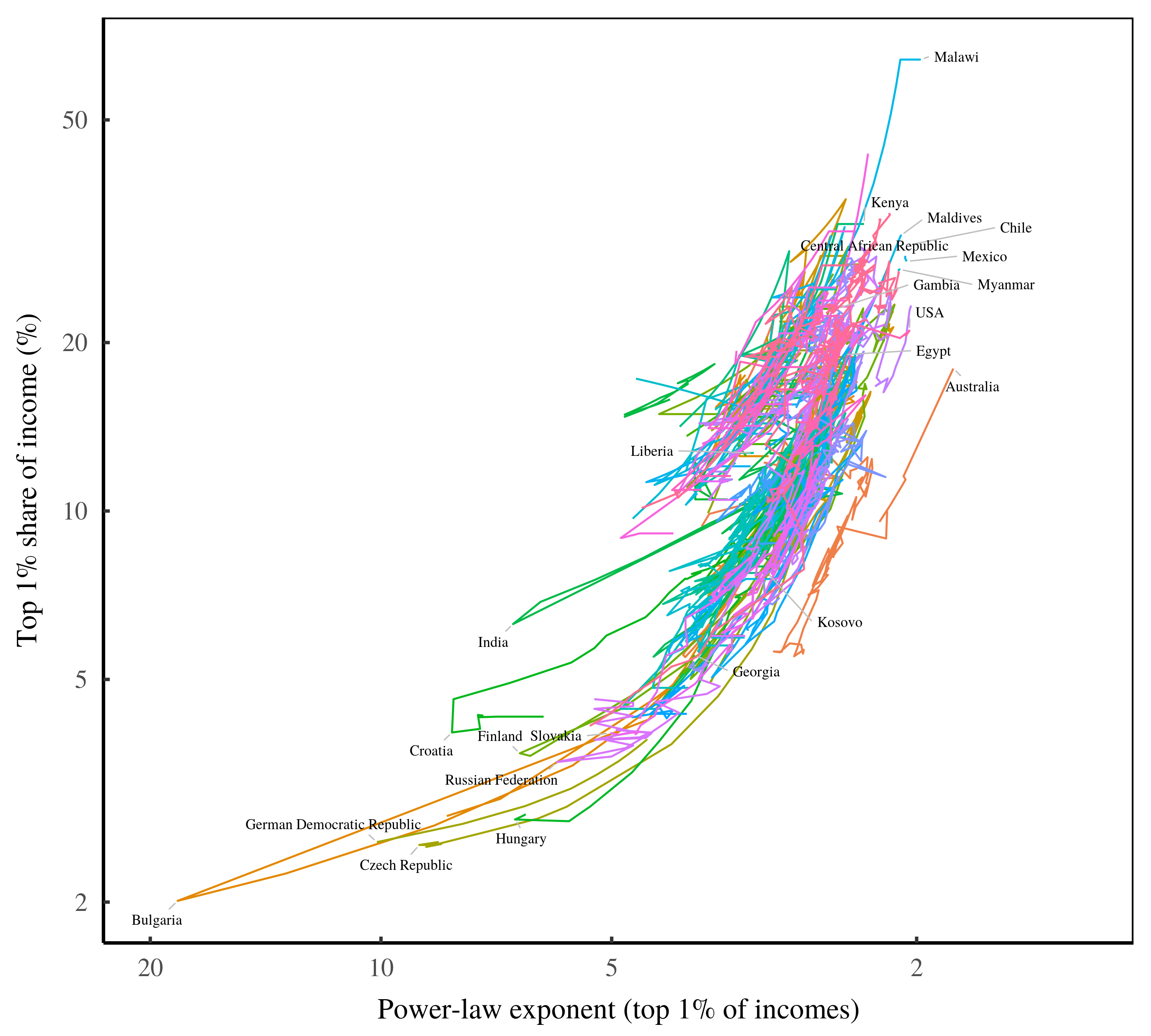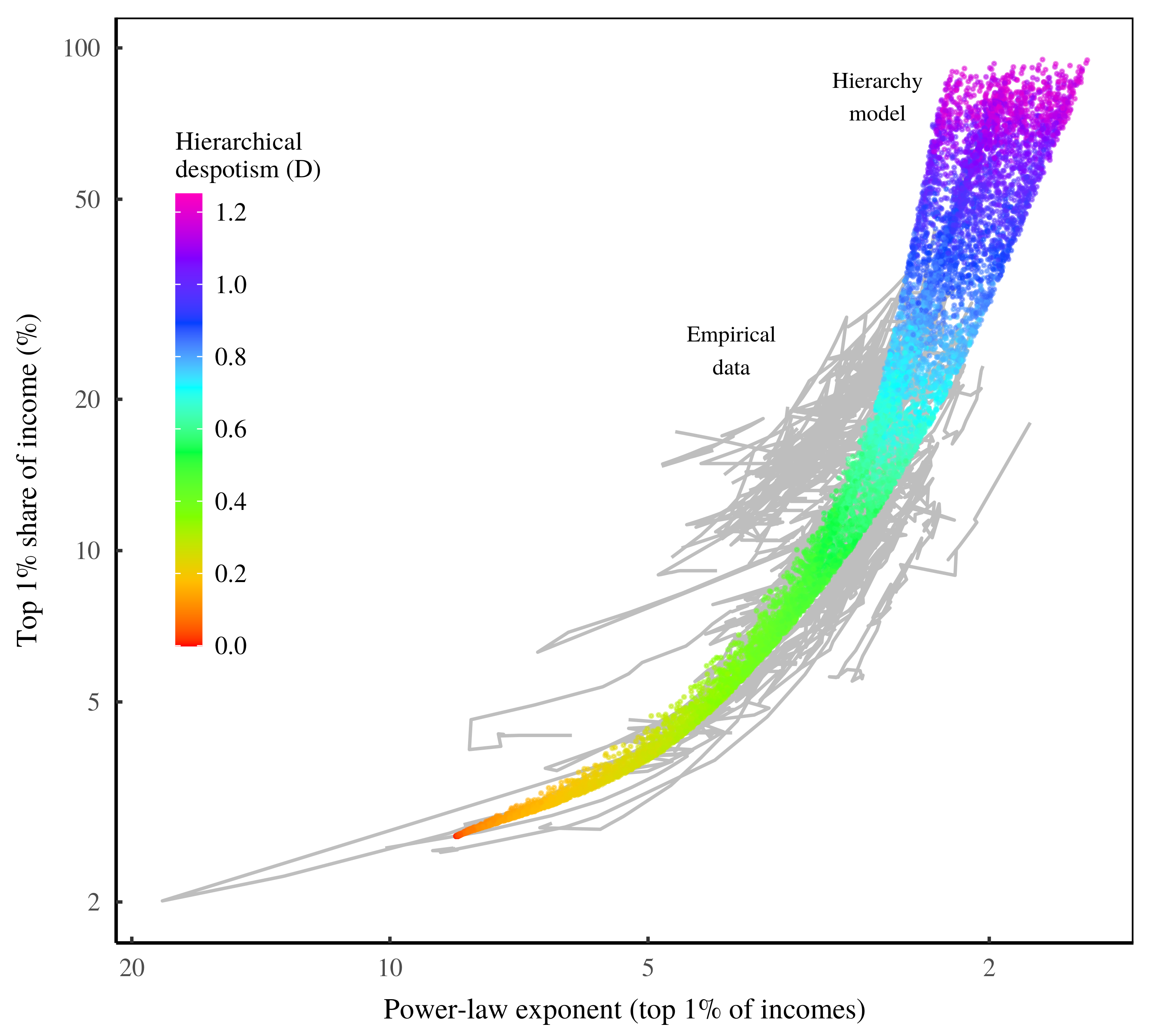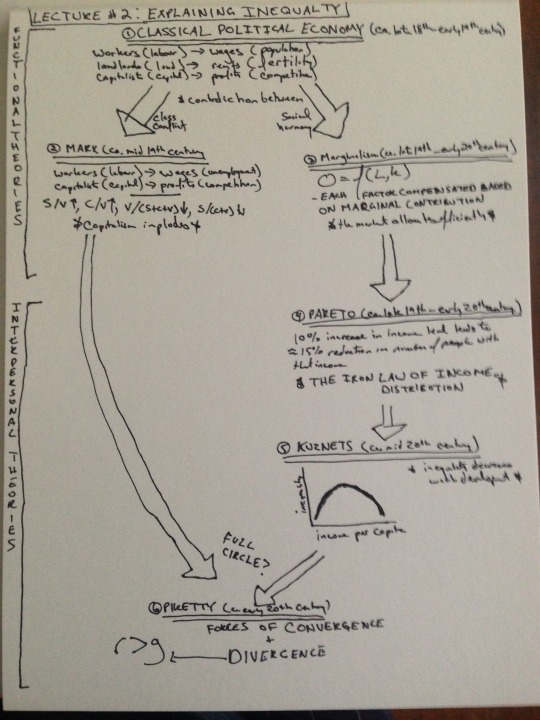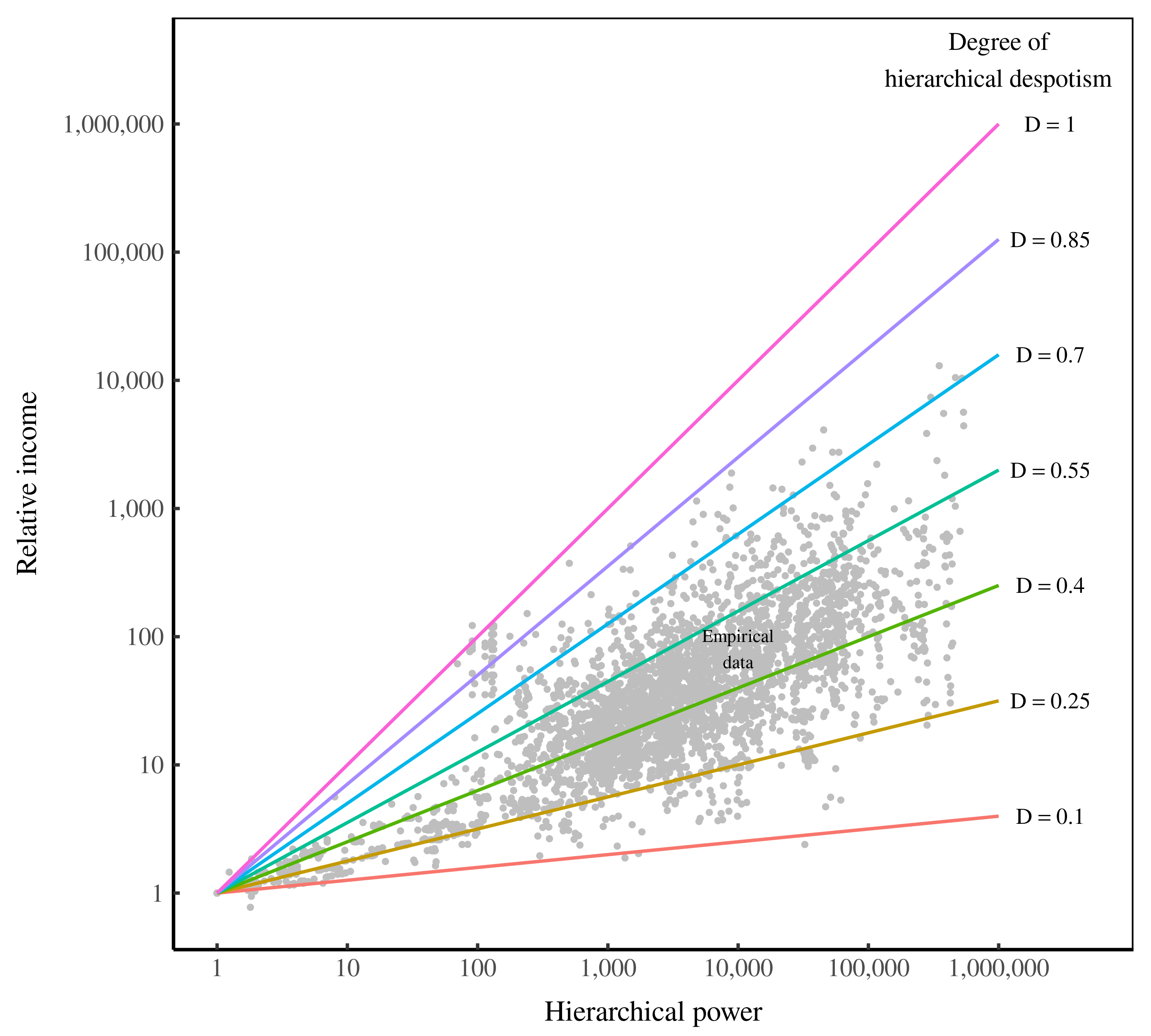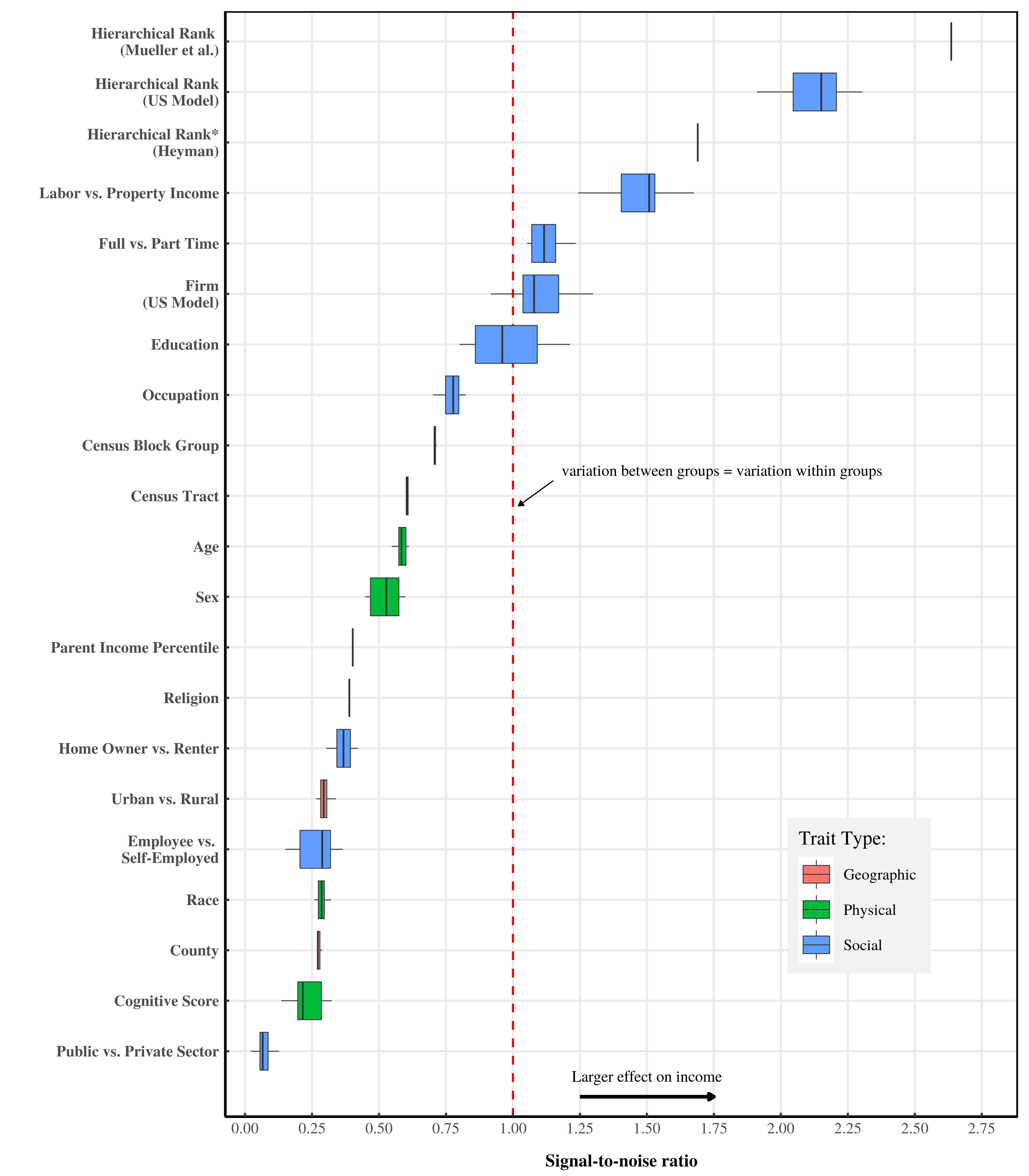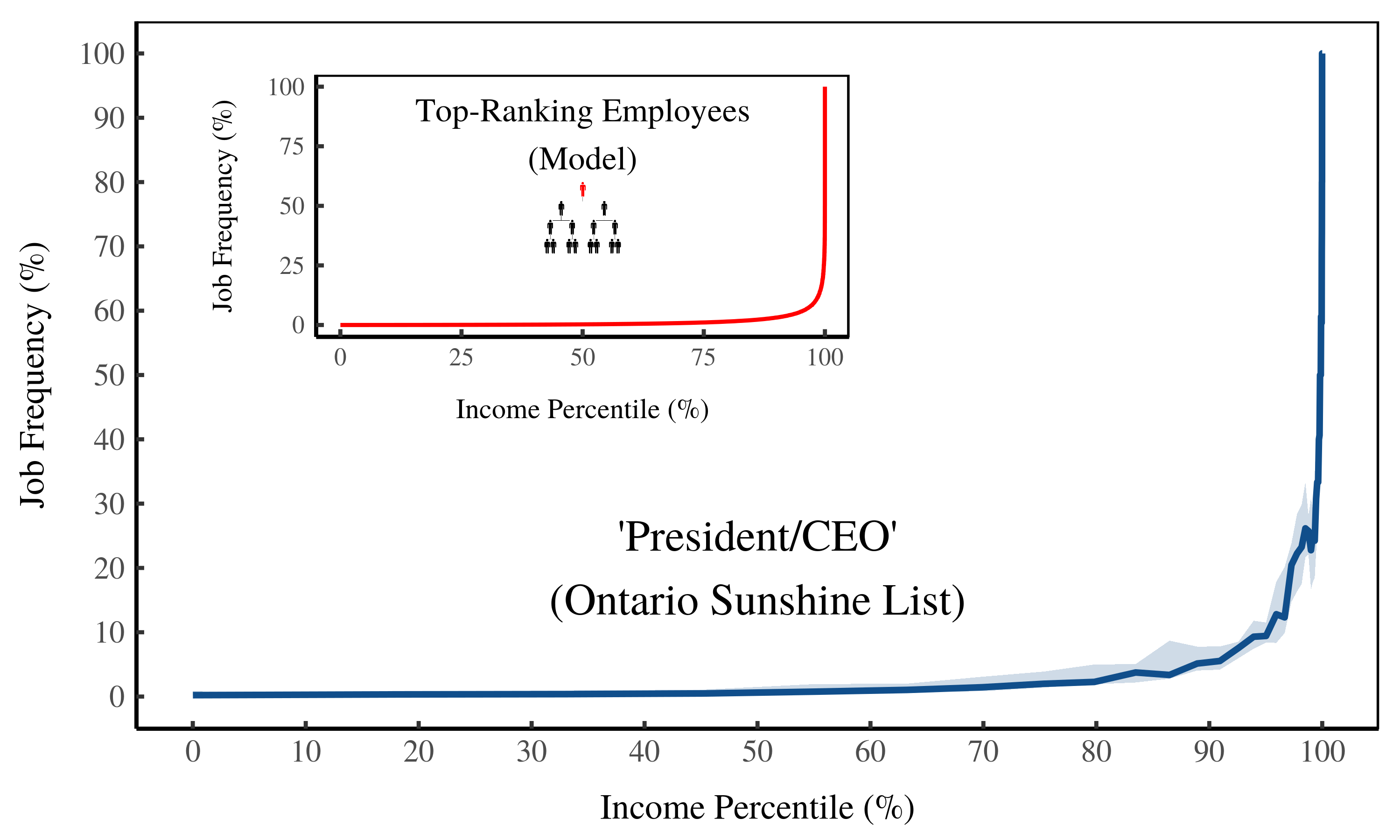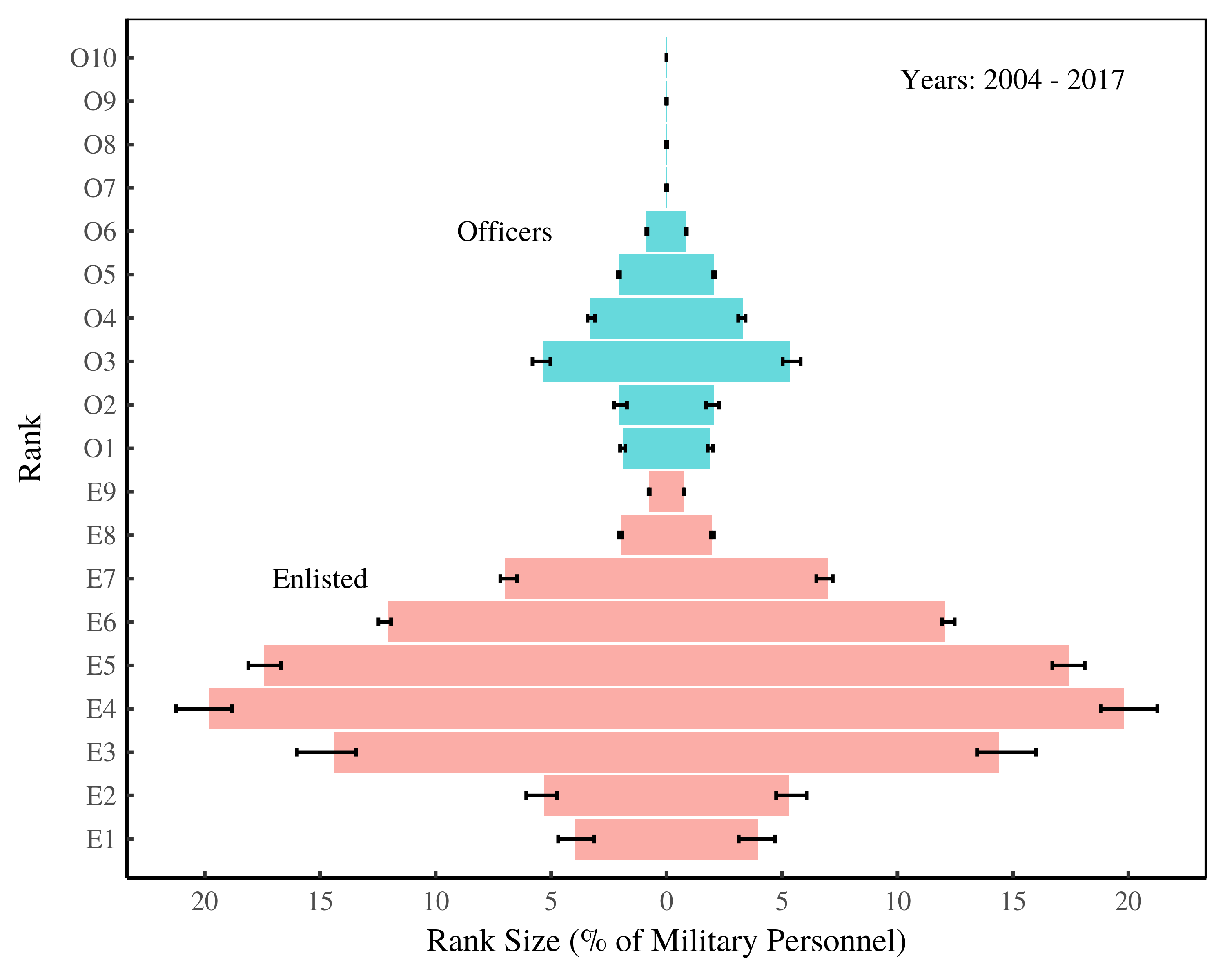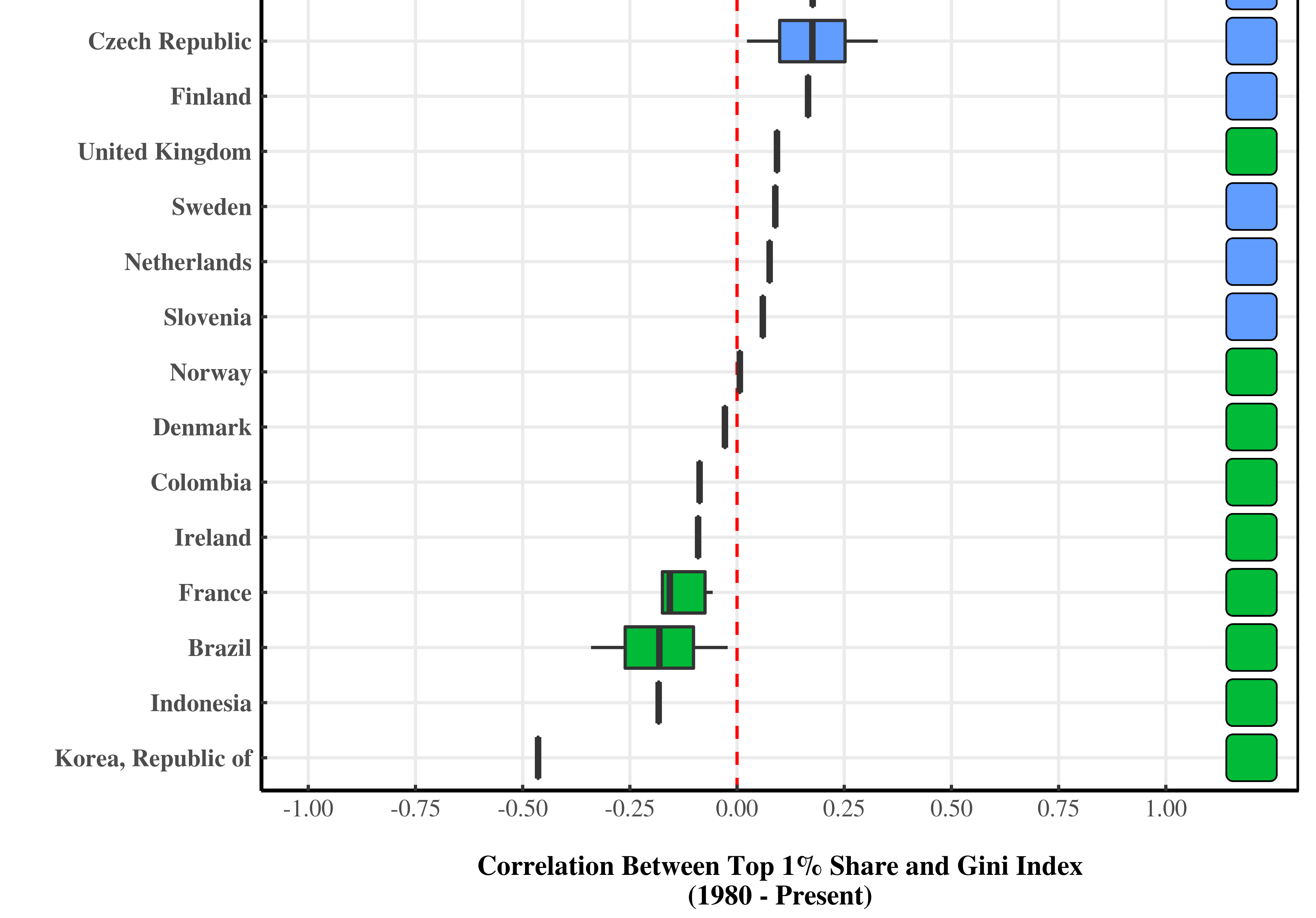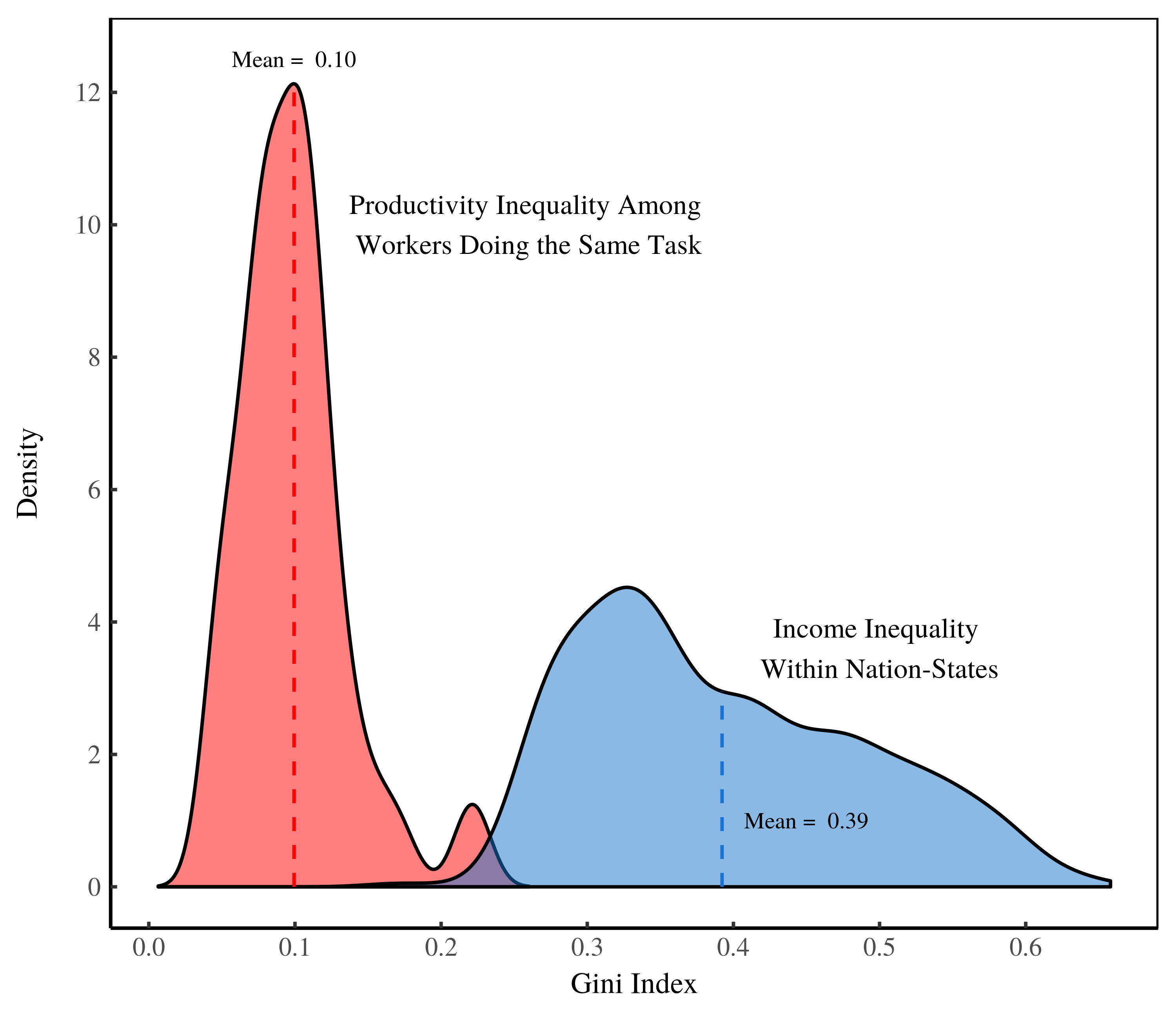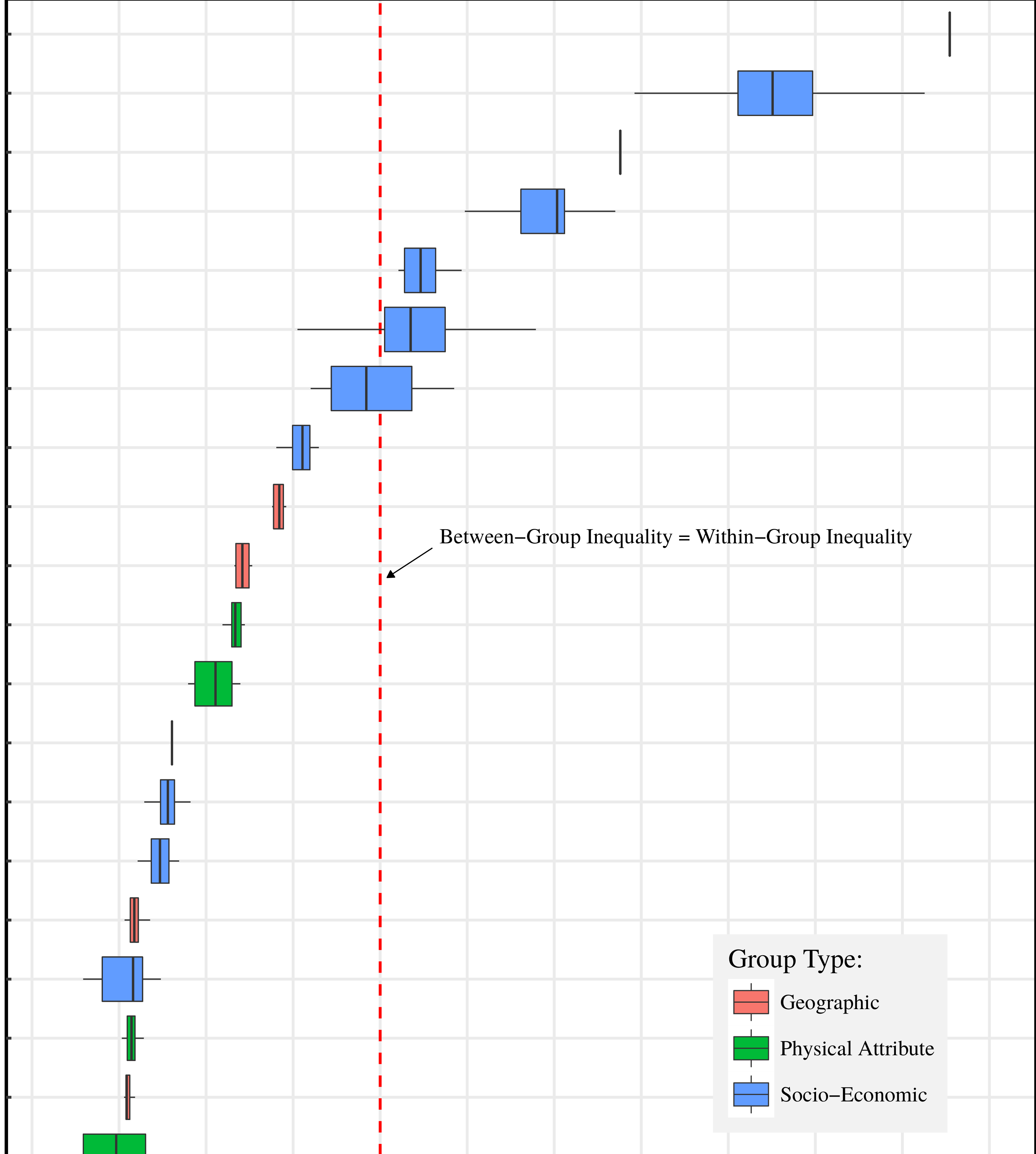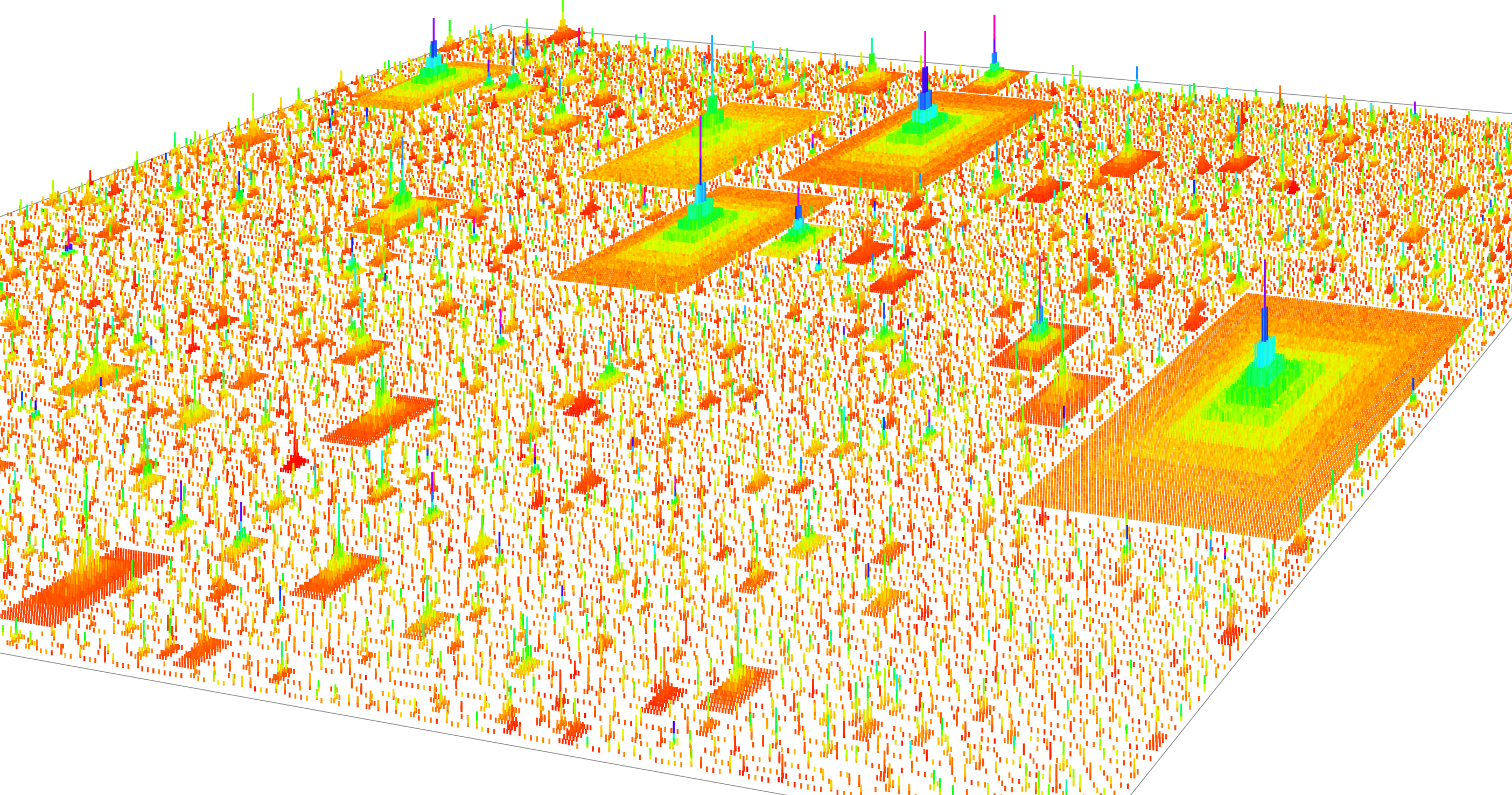Abstract There is little doubt that, in the last hundred years or so, progress has been made in lifting more people out of extreme poverty. Yet, considerable economic inequalities both within and between nations persists and, as recent work has shown, if the rate of return on capital surpasses the rate of growth, inherited wealth […]
Continue ReadingEnergizing Exchange: Learning from Econophysics’ Mistakes
Originally published at Economics from the Top Down Blair Fix Let’s talk econophysics. If you’re not familiar, ‘econophysics’ is an attempt to understand economic phenomena (like the distribution of income) using the tools of statistical mechanics. The field has been around for a few decades, but has received little attention from mainstream economists. I think […]
Continue ReadingRadically Progressive Degrowth: Reducing Resource Use by Eliminating Inequality
Originally published at Economics from the Top Down Blair Fix Pity the billionaires. High in the towers on Billionaires’ Row, life is hard. The pencil-thin buildings groan as they sway in the wind, keeping penthouse dwellers up at night. Water pipes break, ruining posh décor. And elevators are unreliable, interrupting billionaires’ highly productive lives. So […]
Continue ReadingFix, ‘Redistributing Income Through Hierarchy’
Abstract Although the determinants of income are complex, the results are surprisingly uniform. To a first approximation, top incomes follow a power-law distribution, and the redistribution of income corresponds to a change in the power-law exponent. Given the messiness of the struggle for resources, why is the outcome so simple? This paper explores the idea […]
Continue Reading2021/04: Fix, ‘Redistributing Income Through Hierarchy’
Abstract Although the determinants of income are complex, the results are surprisingly uniform. To a first approximation, top incomes follow a power-law distribution, and the redistribution of income corresponds to a change in the power-law exponent. Given the messiness of the struggle for resources, why is the outcome so simple? This paper explores the idea […]
Continue ReadingInequality Looks Very Different in Denmark and the US. Why?
Originally published at sbhager.com Sandy Brian Hager The following piece is based on my State of the Art article in Socio-Economic Review. It was originally published for The Conversation and the World Economic Forum Global Agenda. A Spanish translation can be found here. Why do the richest 1% of Americans take 20% of national income, […]
Continue ReadingTeaching Income Inequality: Theory in Historical Perspective
Originally published at sbhager.com Sandy Brian Hager I’m spending some time during these summer months developing a new undergraduate course on wealth and income inequality. Branko Milanovic’s wonderful new book Global Inequality: A New Approach for the Age of Globalization will be the main text for the course. The first half of the course will […]
Continue ReadingFix, ‘The Rise of Human Capital Theory’
Abstract Today, human capital theory dominates the study of personal income. But this has not always been so. In this essay, I chart the rise of human capital theory, and compare it to the rise (and fall) of eugenics. The comparison, I argue, is an apt one. Eugenics and human capital theory both focus on […]
Continue Reading2021/02: Fix, ‘Living the good life in a non-growth world: Investigating the role of hierarchy’
Abstract Humanity’s most pressing need is to learn how to live within our planet’s boundaries — something that likely means doing without economic growth. How, then, can we create a non-growth society that is both just and equitable? I attempt to address this question by looking at an aspect of sustainability (and equity) that is […]
Continue ReadingWhat Trait Affects Income the Most?
Originally published on Economics from the Top Down Blair Fix If the history of science has taught us anything, it’s that we can’t trust our preconceptions about how the world works. All human societies have developed stories about their place in the cosmos. Almost without exception, these stories were wrong. True, we’ve killed many of […]
Continue ReadingSome Sunshine on the Ontario Job Hierarchy
Originally published on Economics from the Top Down Blair Fix Income, I’ve come to believe, is shaped largely by rank within a hierarchy. If you’re at the top of a hierarchy, you’ll earn a handsome sum. But if you’re at the bottom of a hierarchy, you’ll earn a pittance. As a hard-nosed scientist, I’m always […]
Continue ReadingThe Power Ethos in the US Military
Originally published on Economics from the Top Down Blair Fix In How Hierarchy Can Mediate the Returns to Education I examined the pay structure of the US military. I found that hierarchical rank is (by far) the strongest determinant of military pay. Here I want to show you that there is a regularity to military […]
Continue ReadingAn Evolutionary Theory of Resource Distribution (Part 2)
Originally published on Economics from the Top Down Blair Fix A 25% chance. That’s the likelihood that when I tell someone I’m searching for a job, they’ll say: Remember, Blair … to land a job, it’s not what you know that matters. It’s who you know. OK, maybe I’m exaggerating this chance. Still, it’s an […]
Continue ReadingWhen Inequality Increases and Decreases at the Same Time
Originally published on Economics from the Top Down Blair Fix In Problems With Measuring Inequality, I discussed how inequality is an ambiguous concept. The problem, in short, is that a single metric can never capture every aspect of a distribution of income. Much like we cannot tell the shape of an object from its perimeter […]
Continue ReadingNo, Productivity Does Not Explain Income
Originally published on Economics from the Top Down Blair Fix Did you hear the joke about the economists who tested their theory by defining it to be true? Oh, I forgot. It’s not a joke. It’s standard practice among mainstream economists. They propose that productivity explains income. And then they ‘test’ this idea by defining […]
Continue ReadingFix, ‘Personal Income and Hierarchical Power’
Abstract This article examines the relation between personal income and hierarchical power. In the context of a firm hierarchy, I define hierarchical power as the number of subordinates under an individual’s control. Using the available case-study evidence, I find that relative income within firms scales strongly with hierarchical power. I also find that hierarchical power […]
Continue Reading2019/02.1: Fix, ‘How the Rich are Different: Hierarchical Power as the Basis of Income Size and Class’
Abstract This paper investigates a new approach to understanding personal and functional income distribution. I propose that hierarchical power — the command of subordinates in a hierarchy — is what distinguishes the rich from the poor and capitalists from workers. Specifically, I hypothesize that individual income increases with hierarchical power, as does the share of […]
Continue Reading2018/09: Fix, ‘Energy, Hierarchy and the Origin of Inequality’
Abstract Where should we look to understand the origin of inequality? Most research focuses on three windows of evidence: (1) the archaeological record; (2) existing traditional societies; and (3) the historical record. I propose a fourth window of evidence — modern society itself. I hypothesize that we can infer the origin of inequality from the […]
Continue ReadingFix, ‘Economics from the Top Down: Does Hierarchy Unify Economic Theory?’
Abstract What is the unit of analysis in economics? The prevailing orthodoxy in mainstream economic theory is that the individual is the ‘ultimate’ unit of analysis. The implicit goal of mainstream economics is to root macro-level social structure in the micro-level actions of individuals. But there is a simple problem with this approach: our knowledge […]
Continue ReadingFix, ‘Economics from the Top Down: Does Hierarchy Unify Economic Theory?’
Abstract What is the unit of analysis in economics? The prevailing orthodoxy in mainstream economic theory is that the individual is the ‘ultimate’ unit of analysis. The implicit goal of mainstream economics is to root macro-level social structure in the micro-level actions of individuals. But there is a simple problem with this approach: our knowledge […]
Continue Reading
